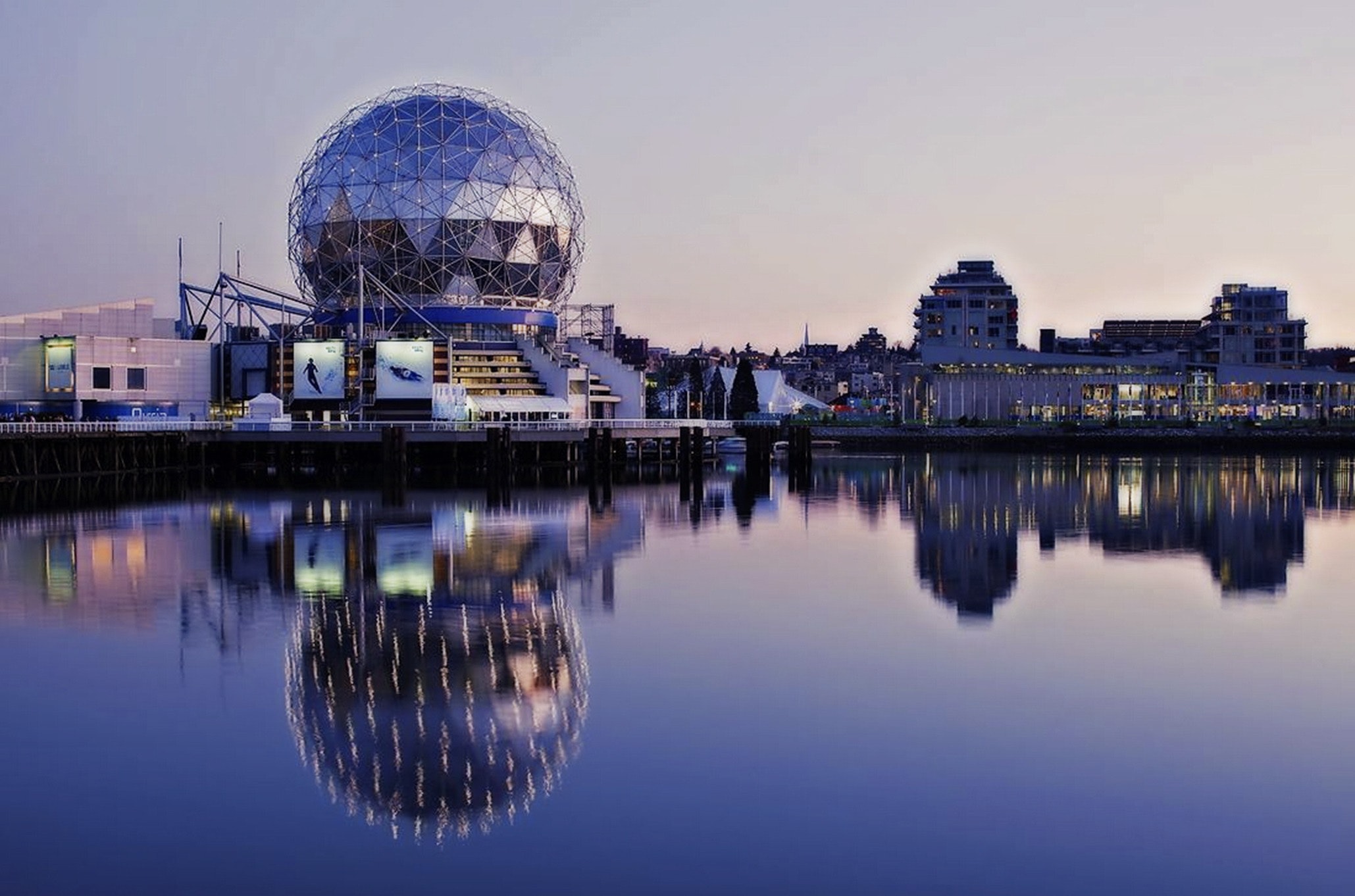That little election with big consequences: Municipal candidates’ positions on small business, tech and accessibility
 By Kathleen Reid
By Kathleen Reid
October 1, 2018

October is just around the corner, and we’re officially in the season of pants with forgiving waistbands, DIY costume planning and – oh, you know – deciding who’s going to run the City of Vancouver for the next three years. No big deal. Except that it is a big deal. Municipal government decisions impact many of our daily life activities. So, sit down, pour a french press, and let us tell you a bit about what’s to come, and why it matters to us, particularly in the tech, small business and accessible living spaces.
Why do municipal politics matter?
Municipal elections may seem like a little thing, but they have big consequences. We often take for granted what municipal governments do. They impact how we get to work, whether or not the peel from our banana lines in a landfill or a garden and how people in the community stay connected through programming. Big things, right? However, looking at voter turnout for municipal elections, we couldn’t blame you for thinking Vancouver’s constituents care more about federal and provincial issues. In the 2014 municipal election, for example, political buffs were excited to see voter turnout jump from 35 per cent in 2011 to 43.4 per cent three years later. When we compare these numbers with the 61 per cent of registered voters that showed up for B.C.’s 2017 Provincial Election, they look feeble at best.
When we dig deeper into why many Vancouverites decide not to vote locally, we understand that the issue might be confusion more than apathy. Unlike a provincial election, where parties are more established (and have access to roughly twice the campaign advertising budget of even the most well-funded civic parties), new city candidates and parties pop up like dandelions mere weeks before voting day, making the task of getting informed that much harder. The volume of choices isn’t the only factor at play. Some would argue that those choices are also of heightened importance; voters in municipal elections get to choose not just their preferred parties/party leaders, but the many individuals that head up three different branches of local government: City Council (one mayor and 10 councillors), the Vancouver Board of Parks and Recreation (seven commissioners) and the Vancouver School Board (nine school trustees). We’ve even been overwhelmed at the ballot box, and we’re engaging with the news and politics every single day.
Let us help
Are you sweating at the thought of casting your vote? Well, peel off a layer because we’re not done.
So, there’s volume of choices, the importance of choices – there’s also the fact that to uncover the candidates’ positions on all the important issues, you’d need some advanced research skills, and maybe a week off work. That’s actually where this article is going. We’ve got some major decisions on our plate here at Switchboard (should Hogan go as Grumpy Cat for Halloween?) and we went digging for answers on several topics of importance to us around Vancouver’s civic election. What do candidates have to say about supporting small businesses, fostering excellence in the area of technology and making the city a more accessible place for people with disabilities?
Supporting small businesses
Individuals and families aren’t the only ones struggling with the rising cost of buying or renting commercial space in B.C. Many small to medium-sized businesses are being pushed further and further to the margins of the city as property values skyrocket. Independent mayoral candidate Shauna Sylvester has raised this issue as part of her campaign, saying the city may have an opportunity to alleviate property woes by charging lower property taxes to smaller local businesses. As part of her platform, she has promised to strengthen and expand the role of SBIAs, simplify permitting processes and appoint a small business ombudsman.
David Chen of newly-formed party ProVancouver has also zeroed in on commercial space issues. He has promised to come up with new property tax formulas for small businesses to help them stay competitive. He also vows to encourage consumers to support local businesses, develop permanent spaces for farmers markets and artisans and increase programming for entrepreneurs. Independent mayoral candidate Kennedy Stewart would like to see more flexible options for where small businesses can operate, including laneway spaces and neighbourhood corner stores. His vision includes zoning changes for more live-work spaces that would be less vulnerable to commercial rent increases and property tax costs.
The NPA’s mayoral candidate, Ken Sim, lists three initiatives related to supporting small businesses in the party’s Economic Plan. The NPA would like to offer more protections to small businesses from rising property costs, streamline any city-based approval processes that come with starting a business and support small businesses that are struggling because of emergency situations like a flood or fire. P.S. don’t let us be your final destination for candidates’ perspectives on small business. There is an all candidates meeting (ticket purchase required) on the subject scheduled for October 2nd, hosted by the Board of Change.
Fostering excellence in technology
The NPA has also included developments in technology as part of their Economic Plan. If elected, Ken Sim has promised to assemble a Disruption Working Group to prepare Vancouver for the adoption of technology-based services like Uber, Lyft and Airbnb. He’d also like to see Vancouver become an early-adopter city for new tech (yes please!), which he hopes would discourage local businesses from relocating to the Silicon Valley. Kennedy Stewart also has his eye on Vancouver’s tech sector, calling it the “industry that makes jobs for the future.” Well said! As part of his commitment to the tech community, he’s pledged to create an affordable hub for tech startups if he’s elected.
Vision Vancouver, has not put forward a mayoral candidate for this election but has five candidates running for council. Vision lists several promises on the issue of technology. As part of their mandate to “grow a creative, innovative and diverse economy”, they’ve pledged to “help land new offices” for companies like Amazon, Twitter, Sony, Facebook and Microsoft (among others). They’ve also agreed to start an entrepreneur fund to support startups in Vancouver.
Supporting people with disabilities
At Switchboard we feel strongly that people with disabilities should be able to participate in public and private life without barriers. One mayoral candidate whose platform stands out in this regard is ProVancouver’s David Chen, who currently works as a financial planner for families facing disability issues. Chen has personal experience in the world of physical disabilities as he was out of work for two years after several debilitating motor vehicle accidents – both caused by drivers not following the rules of the road. In his bio, Chen describes barriers to securing work and notes that it took his family seven years to recover financially from the experience. If elected, he plans to increase out-of-school care services and improve regulation of private caregivers.
Among Shauna Sylvester’s campaign promises on transportation, she has expressed support for increasing services like HandiDart and other solutions to help people with disabilities, and seniors get around. The Coalition of Progressive Electors (COPE) would like to see disability assistance rates increased substantially to $1,600 per month, and they have included this in their policy platform – though it’s unclear how they plan to deliver on this since disability payments fall clearly under provincial authority.
We’re happy to note that Vancouver does have voting accommodations for people who need them. The City of Vancouver expanded these in 2018. This election, more voting stations will be placed in shelters and residences where people with disabilities, mental health issues or seniors reside.
Get out and vote!
Phew! You can now find that extra layer you peeled off 15 minutes ago because the reading is over. We’d never tell you who to vote for, but as a business centred around effective communication, we want to make sure our community has reliable, digestible information at its fingertips when making challenging decisions – including information on how to vote. We’d like to hear which municipal topics are important to you, so drop us a line at hello@switchboardpr.com.
Share

About Kathleen Reid
Founder and Principal
Kathleen is blazing a trail in a sector that values trailblazing above all else since. Since founding Vancouver’s first tech-focused PR and strategic communications firm, the “Forty Under 40” award winner has gone on to build a diverse roster of clients spanning continents and growth stages. Switchboard helps multinationals to join and support the Canadian tech ecosystem; leverages strategic communications to help SMEs collaborate, grow and scale; assists startups in making names for themselves; and champions innovation at all levels of government. As a business leader and as a new mom with low vision, Kathleen relies on assistive tech in her personal and professional life. No wonder her passion for innovation as a tool for good is so profound.
Last Post:
Our New Website Is Live!